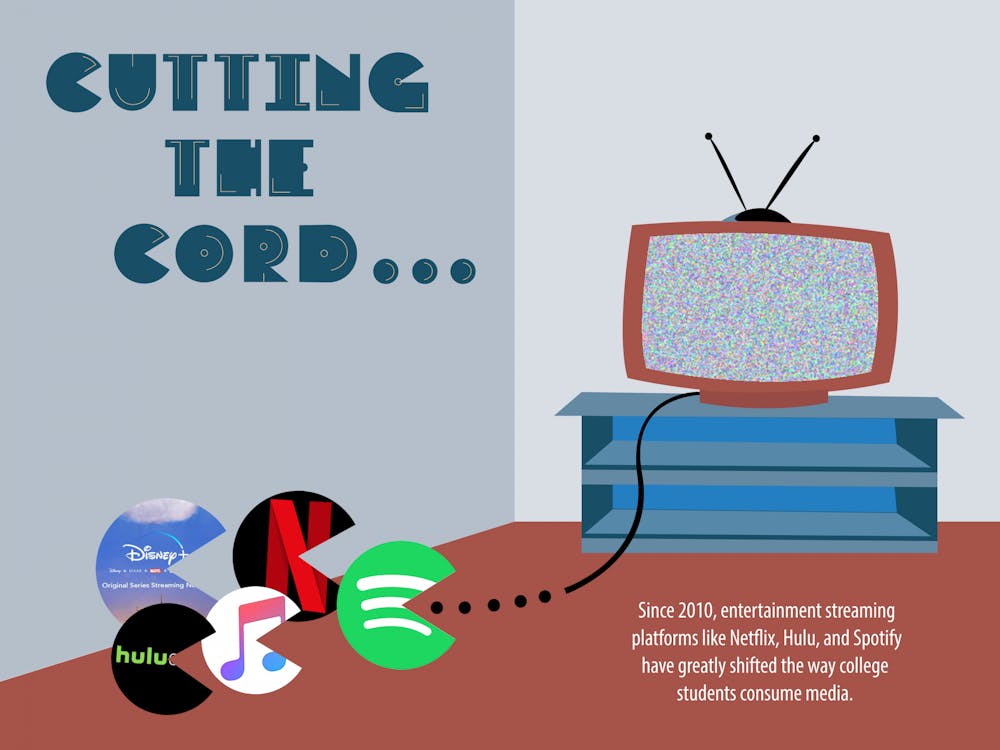The past decade has brought about a lot of changes in the way people consume entertainment. The way that students spend their downtime has changed drastically with the rise of streaming services such as Netflix, Hulu, Disney+, Apple Music and Spotify.
Students used to have to tune in at specific times to specific channels to watch shows and games, or pay a dollar for each song they wanted to listen to on iTunes. Now, all of this entertainment is a small monthly payment away, often discounted for college students. What does this mean for the industry? What does this mean for students?
Nick Ciampa is a 2017 graduate from UNC who was in school when streaming services really started to come into prominence and overtake the entertainment industry. One particular streaming service changed his outlook and consumption of music dramatically.
“When I got Spotify Premium freshman year, I don’t think it’s an exaggeration that it changed the way I live,” Ciampa said. “When you instantly get access to a music library that big, that can really change your appreciation for something and how much time you spend on it, as well.”
Ciampa also noted that he and most of his friends used their parents’ accounts on streaming services to save money while they were students. He said that Netflix offered a great, low-cost way to spend time with friends and bond over TV shows and movies.
“When you have a few friends over, you put on whatever on Netflix and you don’t have to pay for it and nobody really has to chip in,” Ciampa said. “You can all spend some quality time together and not have to pay extra for entertainment.”
Bernard Bell is the executive director of the Shuford Program in Entrepreneurship at UNC. Prior to being one of the showrunners for the entrepreneurship program, he worked for TV One and various other media companies.
Bell has taken note of the way that television has changed dramatically this past decade and how that affected the way students consume entertainment.
“In ECON 125 first semester, I asked the students how many of them had Comcast (or any other cable subscription)," Bell said. "This is a 420 person class. Not one hand went up. That’s when I realized the cable operators who are old corporate guys have no idea that millennials and Gen X-ers aren’t consuming their products at all.”




